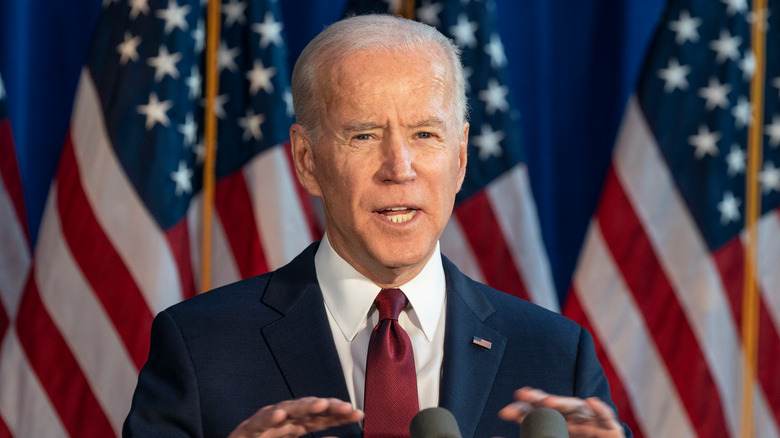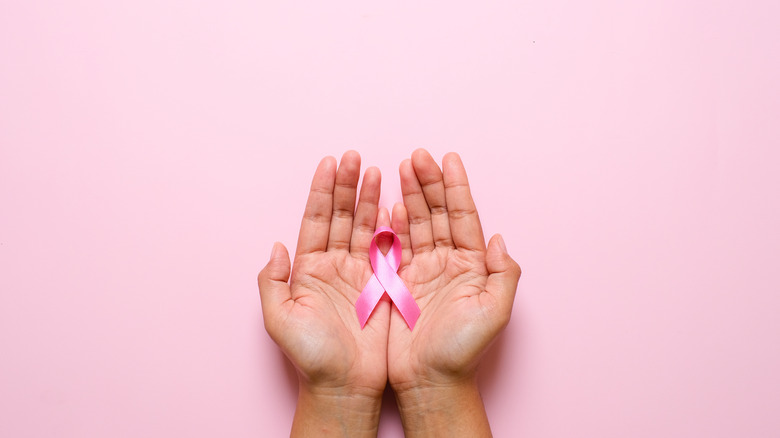How President Biden's Moonshot Initiative Can Change The Way The World Looks At Cancer
On Monday, President Biden gave a speech giving homage to the 60th anniversary of President Kennedy's famous moonshot speech. While President Kennedy spoke of the country's goals to send a man to the moon, President Biden gave an update on his own 'moonshot,' which is to end cancer (via NPR). "This cancer moonshot is one of the reasons why I ran for president," Biden said. "Cancer does not discriminate red and blue. It doesn't care if you're a Republican or a Democrat. Beating cancer is something we can do together."
During his speech, Biden explained how his administration has been working hard to improve cancer research, develop better strategies for treating the disease, and combat inequalities in access to healthcare. A new agency, the Advanced Research Projects Agency for Health, was established in February to focus on health and biomedical research. Biden also explained that he will be signing a new executive order for a National Biotechnology and Biomanufacturing Initiative, which will put a focus on funding and developing technology that will help find a cure for cancer. The Biden administration hopes that these initiatives will one day end the plight of cancer in the United States for good.
What to know about cancer in the United States
In the United States, cancer is the second leading cause of death after heart disease. The American Cancer Society estimates that in 2022, there will be 1.9 million new cancer cases and 609,360 cancer deaths in the United States. Cancer is a broad term for a group of diseases that can affect any part of the body. The common thread among all types of cancer is the uncontrolled growth of abnormal cells. Cancer starts when normal cells in the body begin to change and grow out of control.
There are many different types of cancer, each with its own name and treatment approach. The most common cancers include breast cancer, lung cancer, prostate cancer, and colorectal cancer (via WebMD). Other cancers include ovarian cancer, pancreatic cancer, and skin cancer. Cancer can also be classified by where it starts in the body. For example, lung cancer starts in the lungs, while breast cancer starts in the breast tissue.
Cancer is a complex disease that can develop over many years. In some cases, it may not be possible to prevent cancer entirely. However, there are lifestyle choices you can make that may lower your risk of developing cancer or help improve your chances of surviving if you are diagnosed with cancer (via Mayo Clinic). These include eating a healthy diet, maintaining a healthy weight, exercising regularly, and avoiding tobacco products.


